Beyond the Bike Park: The Dirt Affluence of Park City
Originally posted on May 31, 2016 at 12:02 pm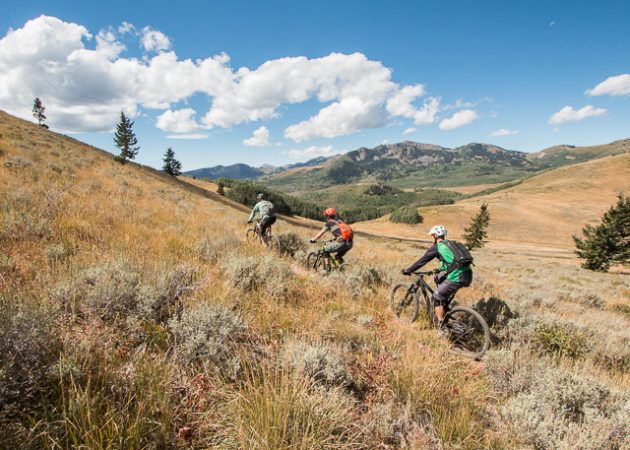
Words: Matt Kasprzyk
Photos: John Shafer
Originally published in Issue #190
There’s a lot in Park City for the cosmopolitan, just as there is for the adventurer. We know that not everyone rolling up to its opulent resort in a Porsche is a millennial wearing sweatpants and an Affliction T-shirt—some have a roof rack on their Cayman. We know not every dude wearing a $6,000 wristwatch as he sits in a cafe with his wife likes bathrobes and spa days—that watch has a heart rate monitor. We also know that resort towns can seem like cesspools of bacteria-laden brown mud leaking out of the abandoned mine shafts that these towns were built on—a place that can be a hub for incredible adventure far off the beaten ski resort path. A type of choose-your-own-adventure of sorts for those who prefer grit to glamour.
Most people think of two things when Utah is mentioned: Mormons and beer. Rightly so, perhaps. Although those two things may not come to mind together, they are separately associated with Utah, for sure. There’s an odd juxtaposition of values in Utah, and more specifically Park City, where the tourists outnumber the residents.
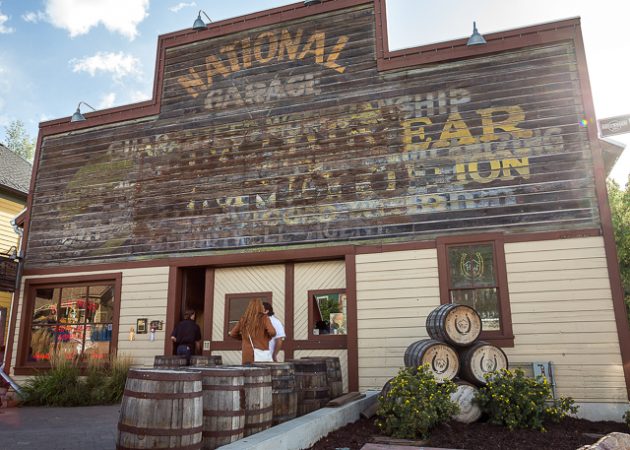
But there is a lot more to the story than Brigham Young, “mild drinks” and Gucci. For example, the Utah Recreational Use Statute of 1971 “is to encourage public and private owners of land to make land and water areas available to the public for recreational purposes by limiting the owner’s liability toward persons entering the land and water areas for those purposes.”
That’s a pretty big deal. The land that many of the resorts use around Park City is privately owned—not leased from the state or federal government—giving the public easier access to the terrain with fewer restrictions. Since landowners in Utah are much less liable for uninvited guests, the statute has helped create a unique ride center that is less restricted by land access issues compared with much of the nation. It’s no surprise then that this valley on the Wasatch Back, with more than 400 miles of public access trails, was IMBA’s first gold-level Ride Center.

This development wasn’t overnight though. There’s been a tangible commitment to recreation in Park City since the 1960s. It’s hard to imagine that the now affluent community was once almost an abandoned ghost town. Like many other modern resort towns throughout the Rockies, Park City has a history of mining and extraction. It was once the site of the largest silver-mining camp in the country, and the Ontario and Silver King mines were two of the most famous silver mines in the world. But then there was a devastating fire, several mining deaths and a declining silver market, all of which contributed to a dramatic shift in the economics of the region.
On Dec. 21, 1963, United Park City Mines opened Treasure Mountain using a combination of federal funds meant to revitalize the community and its mineral rights. The last surviving mining corporation in Park City opened a ski resort on the land they had the property rights to. Most of the infrastructure was old mining equipment. Aerial trams that hauled ore were converted into chairlifts. The special “Skier’s Subway” was a 2.5-mile ride through the Spiro Tunnel on a mine train that culminated with these early skiers boarding a mining elevator that climbed 1,750 feet to the surface. By the end of the ’60s, Treasure Mountain had changed its name, and we currently know it as Park City Mountain Resort (PCMR).
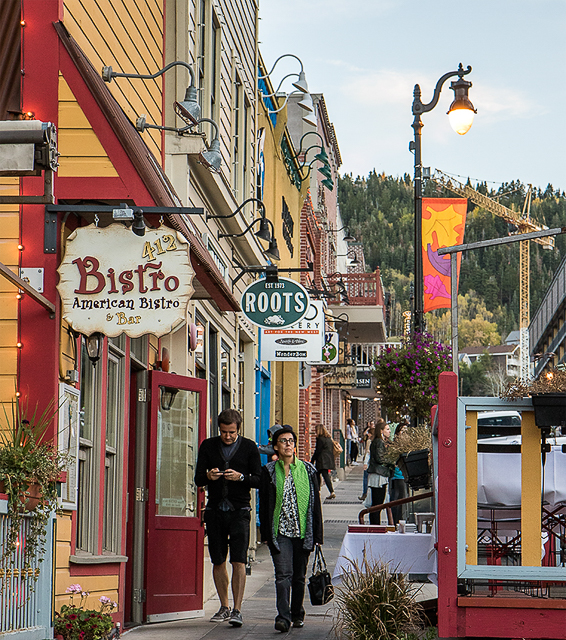
The reason all this winter stuff is relevant is that it illustrates a dramatic shift in policies and economics that helped created a unique environment based on outdoor recreation and land access. The tourism industry now reportedly contributes over a third of the total economic value to the state of Utah. In a few decades Park City went from being almost forgotten to the center of the world stage. When Salt Lake City hosted the 2002 Olympic Games, some of the events were held at PCMR and Deer Valley.
Rags to boots lined with fur riches. Tourism to the resort saved the town. It’s a community that embraces and preserves its heritage while encouraging material indulgences. The Victorian storefronts of Main Street are an eclectic group of bars, restaurants, boutiques and tourist traps. Park City hosts the Sundance Film Festival, but the No Name Saloon will host your motorcycle club. Across the street there could be a Lamborghini parked in front of the Banksy mural. You can take a beater shuttle van up to the top of Wasatch Crest or fl y your private jet into town for an afternoon ride. There are expensive resorts and less expensive resorts.
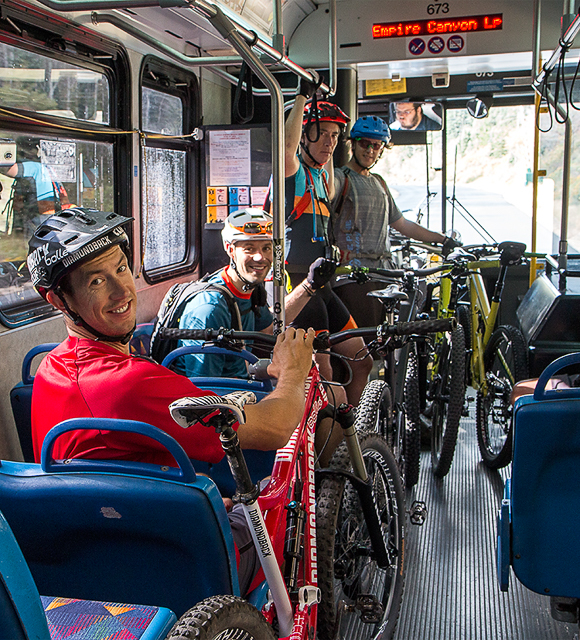
But what you don’t have to pay for is trail riding away from said resorts. PCMR, Deer Valley and Canyons all have unrestricted trail access. Sure, you can buy a lift ticket and ride the bike parks. Deer Valley’s new Tidal Wave flow trail, designed by Gravity Logic, opened for the 2015 season and was finished by early September. Canyons Resort has also been investing in its bike park, but it’s the singletrack access right in town that’s unique.
There are a few mini-Valmont-style bike parks with pump tracks, jump lines and progressive skills courses throughout the Salt Lake City and Park City areas. From anywhere in Park City you can hop on a free bus with your bike. Although the buses are outfitted with the usual metro tray racks on the front and back, you can also bring your bike right into the bus with you and get a free shuttle to anywhere in town. Many of the resorts also offer complimentary shuttle services with your stay. So once you get there, you can leave the car parked and head off the mountain to ride. White Pines Touring is a great place to start your ride experiences. They offer guided tours of area singletrack or rail trails.
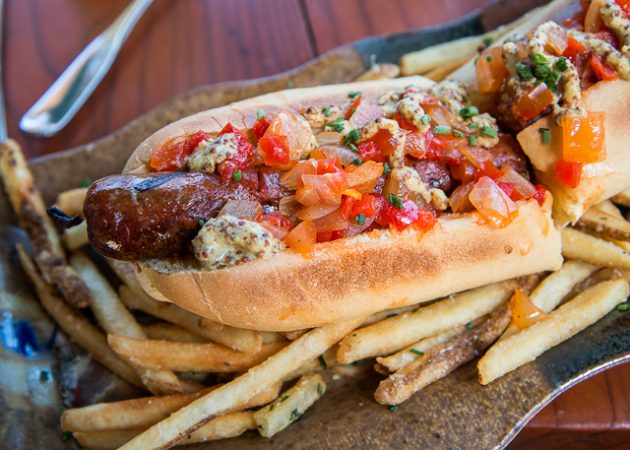
There’s so much riding in the locale that a guided tour is a great idea for first timers to the area. Behind the White Pines Touring shop you can pick up the bike path and ride safely to the Park City bus station. Grab your bike and hop a bus to Mid Mountain near the Montage Deer Valley resort free of charge. The Montage is a new bike-friendly resort hotel that offers superb access to the Mid Mountain trails. It also has every amenity to make your stay incredibly comfortable. From the bus stop, or front door of the Montage, it’s a quick ride up the road to the Mid Mountain trailhead.
The Mid Mountain Loop is an IMBA Epic ride. According to MTB Project, it’s a 22.9-mile loop featuring “classic Wasatch singletrack with lots of climbing, descending and ridge-top riding through aspen and pine forests.” Highly rated, it’s a must-do ride. End it at the Silver Star Cafe near the Sundance Institute and you won’t be disappointed.

Deer Valley also has terrific dining options. Prepare to indulge yourself, but don’t feel guilty about a plate of four ice-cream sandwiches for lunch that are made with homemade cookies. You’ll pedal it off at Strawberry Narrows. At Alberto’s Mexican, grab your breakfast burrito for the road because this recommended ride is a bit out of town but worth the drive.
Strawberry Narrows begins at the Aspen Grove Marina. The trail follows a narrow strait between Strawberry Reservoir and Soldier Creek Reservoir. There isn’t much net gain or loss in total elevation, but you’ll be doing several short, grunty climbs. It’s a lot like riding the rolling terrain of the East Coast. What’s unique about it, though, is how often you’ll transition between sagebrush with high-desert-like conditions to pines and aspens. The Narrows is a winding strait between two larger bodies of water. Each finger that juts out has two distinct sides—one that gets a lot of sun and one that doesn’t. The out-and-back ride transitions between desert-like flora with some ledgy rock sections to swoopy forest singletrack through aspens.
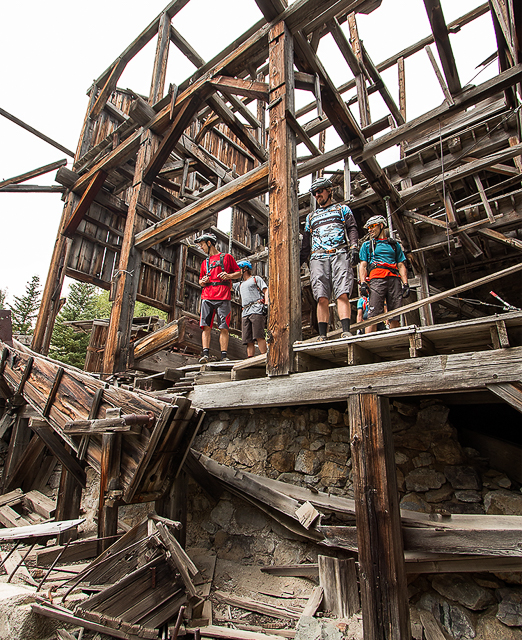
Another not-to-miss loop is Big Cottonwood Canyon, 12 miles southeast of Salt Lake City. There are some technical sections threaded together by high-altitude ribbons of dirt with spectacular scenery and terrain. A long ride on the Wasatch Crest can take you all the way to Canyons Resort. Pick your own adventure through this bike park’s trails as you meander your way to the base to grab some post-ride beers.
If you really want to plan a getaway and challenge yourself, there’s the Park City Point 2 Point race held Labor Day weekend. It’s billed as one of the toughest endurance races in the West, clocking in at about 78 miles with 12,000 feet of elevation gained. Plus, 90 percent of the course is singletrack. And about that beer in Utah…

Not everywhere has lusty singletrack, but you can bet that nearly everywhere in the world has their local brew. Utah is no different. Yes, they have it, but there are restrictions. The craft beer and distillery scene in Utah isn’t as strong as other places around the country, but nonetheless great things are happening there despite a few Mormon-influenced laws still in the books. Beers served on tap cannot be above 4 percent ABV. Secondly, you can’t have more than one drink in front of you at a time. Also, alcohol higher in proof and ABV must be purchased at a state-owned store, but that’s not much different from some other states. It’s still very possible to get drunk.
When I asked a bartender about the unique laws, the response was, “Are you coming here to drink or are you coming here to ride?” Point taken. I was there to ride some of the most affluent singletrack on earth.